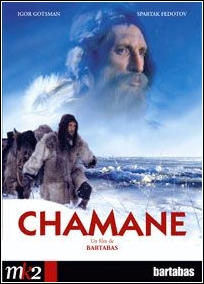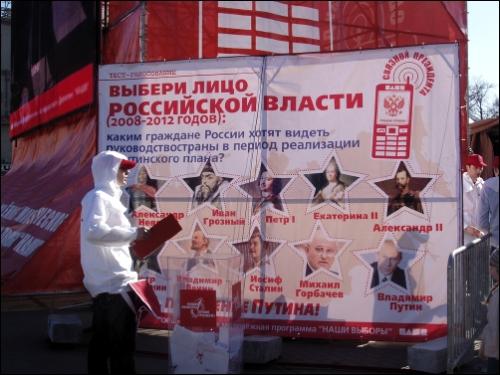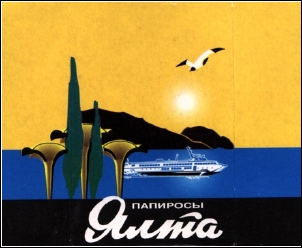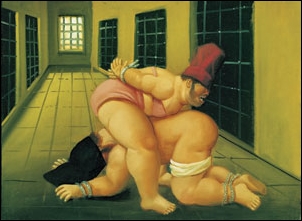
das öffentliche verkehrswesen streikt wieder einmal in paris, der letzte streik hat (in krassem widerspruch zu sauseschritts vollmundigkeit) gezeigt, dass es tatsächlich ernst wird. da es in frankreich offenbar weder eine konflikt- noch verhandlungskultur gibt, meldet sich die stadt einfach ab und überläßt menschen ohne auto ihrem fussgänger - schicksal. flott titelt spiegel online: der tag der improvisationstalente.
wie soll sauseschritt morgen zum flughafen kommen? taxis nehmen keine bestellungen an (denn das verringert ihre gewinnspanne an tagen wie diesen drastisch) und sind in solchen situationen auch nicht auf der straße oder an standplätzen zu bekommen, der rer b ist tres pertubé und ein auto steht auch nicht zur verfügung. bleibt nur der air france flughafenbus und dieser ist auch im normalzustand völlig unzuverlässig. magnifique !!! meine sympathie mit beiden, der regierung und den streikenden hält sich naturgemäß in grenzen.
(...) This summer, Danish television showed “FLYING: Confessions of a Free Woman” in a series of 6 episodes. At first I was not too keen to watch it, but after seeing one episode I was completely engrossed in it. The film is asking questions and considering issues that are really important to women. What does the modern woman want? What is a woman’s life like around the world? Do women have a special language? The narrative is following Jennifer Fox’s personal life over four years and her conversations with other women around the world. Super intimate and honest conversations. I’m really impressed. There are only very few of my own friends who are so open about their lives and how they live (...) itunes has a complete interview with jennifer fox about the making of the film. more reviews on rottentomatoes. many more episodes plus a long review on divine caroline.

in 2002 mk2 released two movies directed by bartabas on dvd. sauseschritt watched chamane. this is the second movie of the artist, horsetrainer and movie director clement marty (bartabas). the original movie was released in 1996.
the new york times movie review states:
(...) Gorgeously shot in the wide-open Siberian wilderness this outdoor adventure chronicles the dramatic escape of a big-city bred violinist from a Siberian labor camp. Underlying the action is the tale of a man who learns to become one with his environment rather than trying to dominate it. The story begins as enigmatic, Asian tribesman Toli comforts the starved violinist Dimitri that they will be escaping soon (...)
see parts of the encounter of the main character with a russian kosack:
">

the economist reports (ENG) how history is supposed to be interpreted nowadays in russia:
(...) RUSSIA'S past was admirable, its present is more than magnificent and as for its future—it is beyond anything that the boldest mind can imagine.” Thus Count Alexander Benckendorff in the 1830s, on how Russia's history should be viewed and written. This advice from the head of the country's first secret police is now being heeded in the Kremlin, where a new Russian history is being forged.
The decade after the collapse of communism was notable for the absence of any official ideology. Weary of grand designs, the Russian elite preferred pragmatism and enrichment. Asked about his national dream in 2004, President Vladimir Putin said that it was to make Russia competitive. But Russia's new oil-driven strength and its aspirations to be a world player have once more created a demand for something more victorious and uplifting. And as Mr Putin looks for ways to stay in power after his second presidential term expires next March, his ideological comrades are placing him in a gallery of Russia's great leaders, a quasi-tsar (...)
dazu auch eine meldung aus der moscow times in hinblick auf die bevorstehenden wahlen zur duma (ENG):
(...) Pro-Kremlin youth groups, backed by police, are in the final stages of preparations to inundate the city with tens of thousands of loyal teens with orders to prevent an Orange-style revolution in the lead-up to the Dec. 2 State Duma elections.
Few of the conditions that led to Ukraine's 2006 Orange Revolution or the Rose Revolution a year earlier in Georgia are present in Russia, however, and opposition youth groups say they aren't looking for a confrontation. But this isn't stopping the authorities from confining them to the periphery anyway.
Activists from Nashi, Young Guard and Young Russia have been pouring into schools, universities, clubs and bars nationwide to spread one message among Russia's youngest electorate: It is your duty to vote for United Russia, the party of President Vladimir Putin (...)
 im oktober 2002, während des urlaubs auf der halbinsel krim, wollte e. unbedingt auch nach kertsch, allein die verkehrsverbindungen in den osten der halbinsel waren derart schlecht, dass wir dies nach einigen bemühungen bleiben ließen.
im oktober 2002, während des urlaubs auf der halbinsel krim, wollte e. unbedingt auch nach kertsch, allein die verkehrsverbindungen in den osten der halbinsel waren derart schlecht, dass wir dies nach einigen bemühungen bleiben ließen. die ölkatastrophe ließ sauseschritt aufhorchen und auch, dass die medien eigentlich nur sehr halbherzig berichten. ja, kertsch ist in europe, das asovsche und das schwarze meer sind es auch! sauseschritt folgert, dass die mentalen landkarten der west- und mitteleuropäer entweder (1) noch immer vom kalten krieg geprägt sind; (2) ein falschverstandener modernismus den blick auf europa verstellt; (3) tankerunfälle inzwischen langweilig geworden sind. nichtsdestoweniger darf in erinnerung gerufen werden:
(...) Die Umweltkatastrophe im Schwarzen Meer dürfte weit schlimmer sein, als bisher angenommen: Mehr als 2000 Tonnen Heizöl sind aus einem Öltanker ausgelaufen, der nach einem schweren Sturm am Sonntag leck geschlagen war. Mehr als 30.000 Vögel und zehntausende Fische sind laut Angaben des Gouverneurs Alexander Tkatschow bereits verendet. Zudem seien Futtergründe für Delfine bedroht.
Die Beseitigung der Folgen des Unwetters, bei dem auch tausende Tonnen Schwefel austraten, werde laut Behörden mindestens zehn Jahre dauern. Der Leiter der Umweltaufsicht, Oleg Mitwol, sprach von einer „schwierigen Lage“. Etwa 800 Helfer waren am Dienstag nach russischen und ukrainischen Angaben im Einsatz, um den Ölteppich abzutragen und verschmutzte Strände zu reinigen. Zusätzlich werden sich 500 Soldaten an den Säuberungsarbeiten beteiligen (...)
berichtet die presse (GERM).
die liste der tankerunfälle ist lang. der guardian führt die bekanntesten an (ENG), hier einige beispiele: der exxon valdez oil spil in alaska 1989, die sea empress ölkatastrophe 1999, iguacu 2000, galapagos islands, cabo finisterre in spanien 2002, karachi 2003, die leckenden schiffe aus dem zweiten weltkrieg im pazifik, die ölpest im gefolge des hurrikans katrina, ölpest vor der küste des libanon 2006, die philippinen 2007, dorset and east devon (england) 2007.
nicht gerechnet die ölpest entlang der ölpipelines, die gerne auch als lebensadern der modernen wirtschaft bezeichnet werden. nicht gerechnet, die alltägliche ölverschmutzung, auch dokumentiert im flickr cluster oilspill:

 der kolumbianische maler fernando butero stellt nun seine arbeiten über abu ghraib in washington (ENG) aus. das wird naturgemäß kontroversiell diskutiert, interessanterweise auch zwischen den kritikern der geschehnisse. die zeit berichtet (GER):
der kolumbianische maler fernando butero stellt nun seine arbeiten über abu ghraib in washington (ENG) aus. das wird naturgemäß kontroversiell diskutiert, interessanterweise auch zwischen den kritikern der geschehnisse. die zeit berichtet (GER):(...) Aber es nicht so sehr diese Geschichtslosigkeit, die befremdet. Es ist vielmehr die Entertainisierung des Irakkrieges, für die die Ausstellung nur ein Beispiel ist. Dieser Vorwurf ist weniger Botero zu machen, der seine Bilder Berkeley kostenlos überlassen will, sondern vielmehr all jenen Schriftstellern, Filmemachern, Regisseuren und Drehbuchautoren, für die der Krieg im Irak nur ein Steinbruch ist, aus dem sie, um mit Adorno zu sprechen, Produkte der Kulturindustrie herausbrechen (...)


